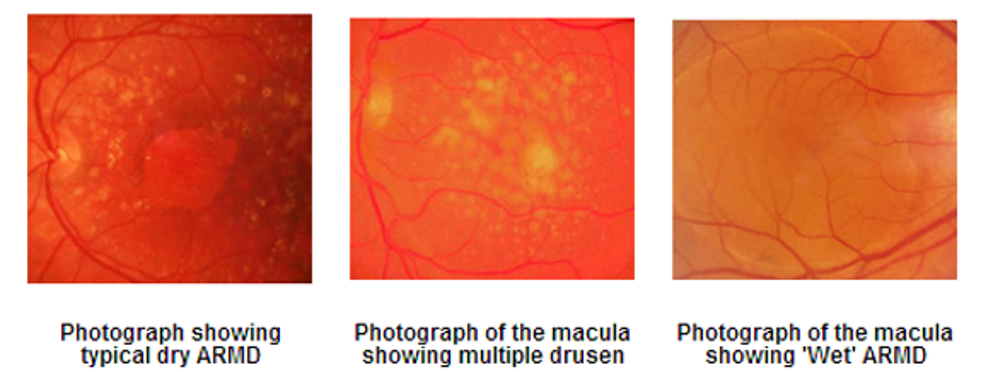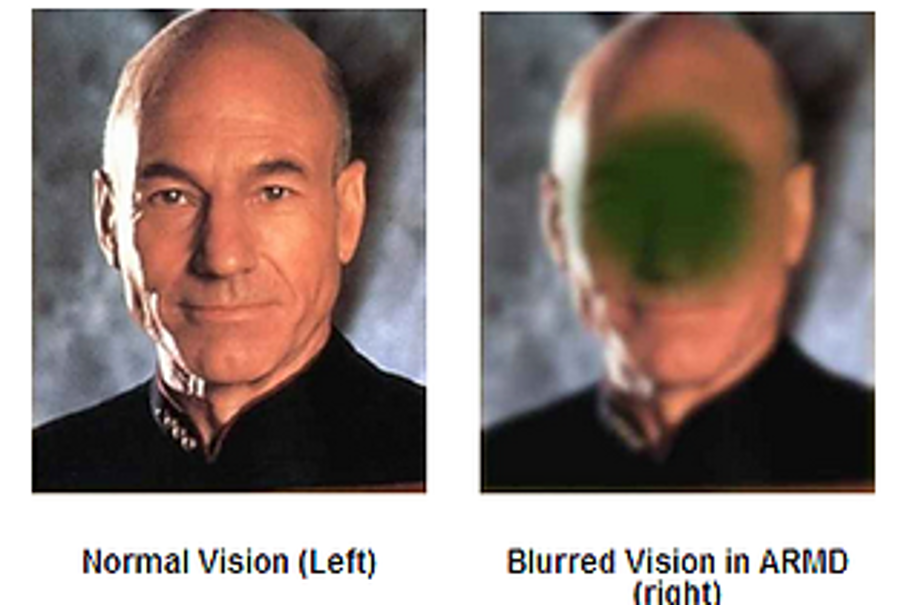Macular degeneration is a condition many of us will face at some point in our lives. Usually affecting people over 50, age-related macular degeneration (AMD) causes blurry vision that can become severe over time.
Macular degeneration is most often caused by ageing (AMD), but many other factors can contribute to the development of the condition. Vision loss can have a far-reaching effect on your everyday life, impacting your work, relationships, and hobbies.
Looking after your eyes and staying in good health can make an enormous difference in preventing conditions like macular degeneration. In this article, we’ll give you helpful advice on how to prevent the condition, identify its symptoms and find a treatment plan that is right for you.
Understanding Macular Degeneration
The macula is the part of the retina that provides us with clear and detailed vision. As we get older, the cells in the macula tend to break down and this causes vision loss. Because the macula is in the centre of the retina, vision loss will occur in the middle of your vision rather than in the edges or ‘peripheries’. While it does not cause blindness, the condition can significantly impact your central vision making it difficult to perform everyday tasks.
There are two types of macular degeneration. Dry macular degeneration is the most common, accounting for roughly 80% of cases (What Is Macular Degeneration, 2019). It occurs when the macula gets thinner and small clusters of proteins form, which gradually causes vision loss. Only one eye may be affected at first but as it develops you will experience vision loss in both eyes.
Wet macular degeneration tends to cause more serious vision loss. This occurs when abnormal blood vessels grow at the back of the macula. These blood vessels leak, which causes more severe vision loss at a faster rate.

Causes and Risk Factors
Macular degeneration is most often caused by age. As we get older, the anatomy of our eyes changes and this can lead to a variety of eye conditions that cause vision loss.
However, macular degeneration has also been linked to genetic factors, obesity, smoking, high blood pressure and race (white people are more likely to develop the condition).
These are things that often affect eye health. Taking steps to improve your diet, quitting smoking and managing blood pressure will limit your risk of developing eye conditions.
If you are at greater risk of developing macular degeneration, it is important to attend regular eye examinations. While the condition cannot be reversed, steps can be taken to limit further vision loss.
Symptoms and Early Detection
The symptoms of macular degeneration develop gradually and will often not be noticeable in the beginning.
The main symptoms are:
- Gradual vision loss. Your central vision will become less clear and you may find it difficult to see in low light.
- Distorted vision. Some people experience straight lines becoming wavy or distorted.
- Changes in the way you see colour. Colours tend to appear faded and you may find it more difficult to differentiate between colours.

With wet macular degeneration, symptoms may come on more suddenly. With this variety, you may experience a sudden loss of central vision as well as a dark or empty area in your vision and light sensitivity.
If you notice vision loss, especially when it appears suddenly, it is important to contact an optometrist and book a comprehensive eye exam as soon as possible.
Treatment Options
Treatment for macular degeneration depends on the type and progression of the condition. Macular degeneration cannot be cured and the vision loss it causes cannot be completely reversed, but in some cases, treatment and lifestyle changes can prevent further vision loss.
For dry AMD, there is no treatment (NHS Choices, 2023). In late dry AMD, an optometrist may recommend a combination of supplements that have been shown to help limit vision loss – this can include vitamins E and C, copper, zinc, lutein and zeaxanthin. However, optometrists will largely be focused on improving vision as much as possible. Low vision aids and therapies to help you adapt to central vision loss are among the most common management options.
For wet AMD, there are two main treatment options:
- Anti-VEGF Eye Injections. These injections are usually given every month or several months and work by limiting the growth of abnormal blood vessels. This stops them from leaking blood into the eye and prevents vision loss. The treatment successfully stops further vision loss in 9 out of 10 people and improves vision in 3 out of 10 people (NHS Choices, 2020.
- Less common is, Photodynamic therapy (PDT). This uses a combination of injected medicine and a special kind of light to close the abnormal blood vessels in the eyes. It can be used alongside Anti-VEGF eye injection or on its own.
When macular degeneration is diagnosed, your optometrist may not immediately recommend a treatment. They may suggest changes to your lifestyle, like altering your diet, quitting smoking or taking certain supplements as well as giving you information on how to monitor your condition and manage vision loss.
Prevention and Lifestyle Changes
Macular degeneration can sometimes be an unavoidable part of ageing, but making changes to your lifestyle and taking an active interest in your eye care can help reduce your chances of developing the condition and allow you to keep your vision as strong as possible.
One way to prevent macular degeneration and other eye conditions is by protecting your eyes from ultraviolet (UV) light. UV light contributes to eye damage and tends to make people more likely to develop age-related eye conditions. Wearing UV-protected sunglasses and shading your eyes when necessary can minimise your risk of developing an eye condition like AMD.
Changing your diet and getting more exercise can also help to improve your eye health and reduce your risk of macular degeneration. Exercise improves circulation, keeping your eyes healthy and making you less likely to develop high blood pressure or another condition that could affect your eyes. Eating a balanced diet rich in nutrients and vitamins and maintaining a healthy weight can also improve eye health and reduce your risk of macular degeneration.
Quitting smoking or never starting in the first place, can make a big difference to your eye health. Smoking is strongly linked to many eye conditions including macular degeneration. Even if you have smoked for a long time, quitting can still improve your chances of maintaining healthy eyes as you get older.
Current Research and Future Outlook
Macular degeneration is an ongoing field of research with many new possible treatments and management options on the horizon. Visiting your optometrist for regular eye exams and staying up-to-date with developments in eye care can help you stay on top of your eye health and know the best way to manage any conditions that do emerge.
In macular degeneration research, gene therapy, immune system treatments and different delivery methods for medicine are all being explored. Some of these may change the way the condition is treated in the future.
Gene therapy, for example, could have an impact on how many conditions are treated. Research is now showing that gene therapy may be used to treat AMD, even in cases where treatment was not previously possible.
Other treatments targeting the immune system are now being developed and may be approved in the near future (Medeiros & Mukamal, 2020).
Macular degeneration is a challenging condition that can significantly impact quality of life. With new research into the condition, healthcare practitioners can offer more and more effective treatments and management options. Staying current can ensure that if you have to live with the condition you find the most effective treatment options for you.




